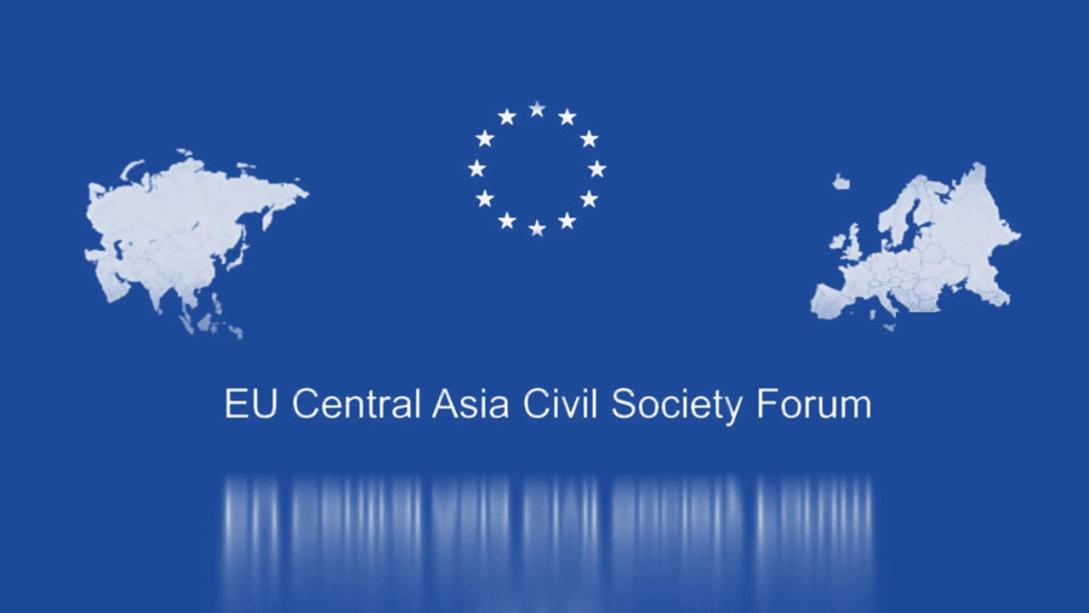EU Central Asia Civil Society Forum: Making Our Partnerships Stronger

On 27 October the second Civil Society Forum took place online, organised by the EU Special Representative for Central Asia. Building on the success of the EU Central Asia Forum held in Bishkek in 2019, 150 civil society and government representatives from the Central Asian countries and the EU convened again for in-depth discussions, opinion exchanges and debates. The Forum was established following last year’s adoption of the EU Strategy on Central Asia: The EU and Central Asia: New Opportunities for a Stronger Partnership.
EU High Representative Josep Borrell, welcomed the participants of the Forum. In his speech he reconfirmed the EU’s strong commitment to stable, resilient and prosperous Central Asia which a strategic region linking Europe and Asia. He affirmed the EU’s wish to be a reliable partner in the region’s reform, transformation and integration processes. At the same time, he stressed the crucial role that civil society plays in building resilient and prosperous societies as the COVID 19 crisis has made obvious in both Central Asia and the EU.
In their opening remarks, Helga Schmid, Secretary General of the European External Action Service and Marat Sydzykov, Deputy Foreign Minister of Kazakhstan recognised the efforts of the civil society initiatives to address the consequences of the COVID 19 crisis and beyond. The Secretary General has also stressed as a priority the importance of preventing the space for civil society from shrinking.
The forum gathered civil society representatives, researchers, media experts, private sector and government experts to discuss ideas, generate new and innovative proposals and recommendations on how civil society can further contribute and be more involved in the implementation of this Strategy at the local level through programmes and at policy level.
Assessing the impact of the Covid 19 crisis on the societies, the participants identified lessons learned, best practices, challenges and opportunities brought forward by the crisis. Five areas where cooperative approaches could be developed, involving the EU, the civil society and the governments. By far the most prominent was the need to improve access to internet as well as many aspects of the on-going digitalisation process, with particular focus on digital literacy. Second, the need to develop social entrepreneurship as a new concept for CA, which encompasses using business approach to address socio-economic problems. Third, civil society’s participation in public decision-making is crucial in contributing to sustainable and inclusive governance. Fourth, while post-Covid recovery will be challenging, it also presents opportunities, such a focus on “people-centred recovery”, on inclusion and well-being, education and public health, additional efforts should be made to ensure that vulnerable groups, such as women, youth, persons with disabilities, labour migrants are part of these processes. In this regard, the EU should reach out to an ever wider range of civil society organisations. Fifth, a call to engage all actors to mitigate the effects of climate change on the region. The need to empower youth to be part of the all of the on-going transformation and development processes was one of the messages running through most of the discussions.
As part of this process and in preparation for the main Forum, four roundtable discussions took place. Through the lens of the COVID 19 pandemic the roundtables, as possible longstanding formats for discussion, explored the role of the media in the societies, as well as highlighted the extraordinary role civil society organisations played in supporting vulnerable groups such as persons with disabilities and women and girls when domestic violence surged. Bringing to the table a wealth of firsthand experience from different walks of life, participants laid out a set of concrete suggestions and recommendations not only to support the discussions at the Forum, but also to support EU’s engagement with governments and civil society in Central Asia. Another roundtable explored new and innovative ways to engage youth into the implementation of the Strategy.
The Forum is envisaged as a platform to amplify their voices within the EU and the EU member states, as well as high-level government representatives from Central Asia. By organising this Forum the EU also seeks to promote the role of civil society in addressing the challenges that our partner countries are facing. The ideas and recommendations will inform the discussions at the 16th EU – CA Ministerial meeting as well as our future work.





